 Courtesy: daverugby83
Courtesy: daverugby83
The sold-out rally at Madison Square Garden shows that PM Narendra Modi’s trip to the U.S. has generated incredible excitement among the Indian-origin diaspora. Will the educated and well-placed Indian American community be able to come together as a power group that influences the U.S. Congress and the White House to adopt pro-India policies?
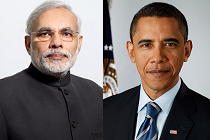 Courtesy: Gateway House
Courtesy: Gateway House
The Modi-Obama meet in Washington will be crucial to take the India-U.S. bilateral forward. The meet will test the commitment of both administrations and hence the dialogue must focus on deliverables such as defence co-operation and LNG exports to create a roadmap for concrete progress
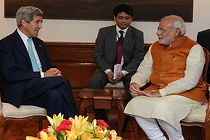 Courtesy: Ministry of External Affairs
Courtesy: Ministry of External Affairs
The 5th India-U.S. Strategic Dialogue was an effort to reverse the downward spiral in bilateral ties, and an opportunity for the two countries to get a realistic assessment of each other. Clearly given the range of differences on issues such as trade, tariffs and price controls, there is still plenty of work to be done
 Courtesy: IBtimes.com
Courtesy: IBtimes.com
On the eve of his departure to India for the fifth India-U.S Strategic Dialogue, U.S. Secretary of State John Kerry outlined a roadmap of partnership between the two countries. While mentioning some of the ongoing concerns of the U.S government, he said this was a moment to chart a new course in the bilateral relationship
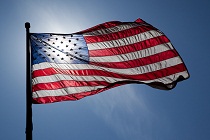 Courtesy: Jnn13/Wikimedia Commons
Courtesy: Jnn13/Wikimedia Commons
The U.S. has not yet appointed a new ambassador to India. But this absence of urgency is less a ‘signal’ to India and more a result of factors such as a backlog of appointments awaiting approval in the Senate and candidates unwilling to accept the post only for the remaining period of the Obama administration
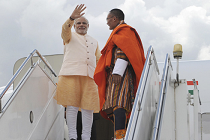 Courtesy: MEA/Indian Embassy Thimphu
Courtesy: MEA/Indian Embassy Thimphu
Narendra Modi’s first month in office has seen him deftly handle India’s neighbours, accept an invitation to visit Washington, enhance relations with Bhutan and accord due importance to China. In the same manner, Modi will also have to move quickly and firmly to reassure foreign investors of the dependability of India’s fiscal environment
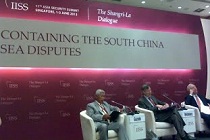 Courtesy: Department of National Defence, Republic of Philippines
Courtesy: Department of National Defence, Republic of Philippines
The recently held Shangri-La Dialogue, an annual security forum of Asia’s defence establishments, highlighted the growing anxieties over China’s belligerent pursuit of territories under dispute in the South China Sea. The U.S. and Japan have made it clear that they will strongly challenge China’s claims. It’s a tussle that will throw up new security dilemmas for India in the future
Google Hangout panel discussion on the views on India's elections from the U.S. & Canada, and a foreign policy agenda for the next government's engagement with the two countries.
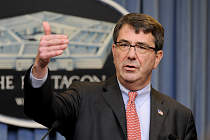 Courtesy: R. D. Ward/Wikimedia Commons
Courtesy: R. D. Ward/Wikimedia Commons
As the UPA government’s tenure comes to a close, the Obama administration is in the process of appointing a new U.S. Ambassador to India. The choice of who will represent the U.S. government in New Delhi will be critical in determining the future course of the bilateral
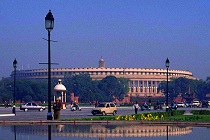 Courtesy: Indianhillybilly and Ambuj.Saxena/Wikimedia Commons
Courtesy: Indianhillybilly and Ambuj.Saxena/Wikimedia Commons
As India goes to the polls, many in the U.S. and at home will hope that a new government will usher in a new era in the India-U.S. bilateral. Yet, past condemnations of the BJP’s prime ministerial candidate and the Obama administration’s liberal leaning bureaucrats might prove to be stumbling blocks












